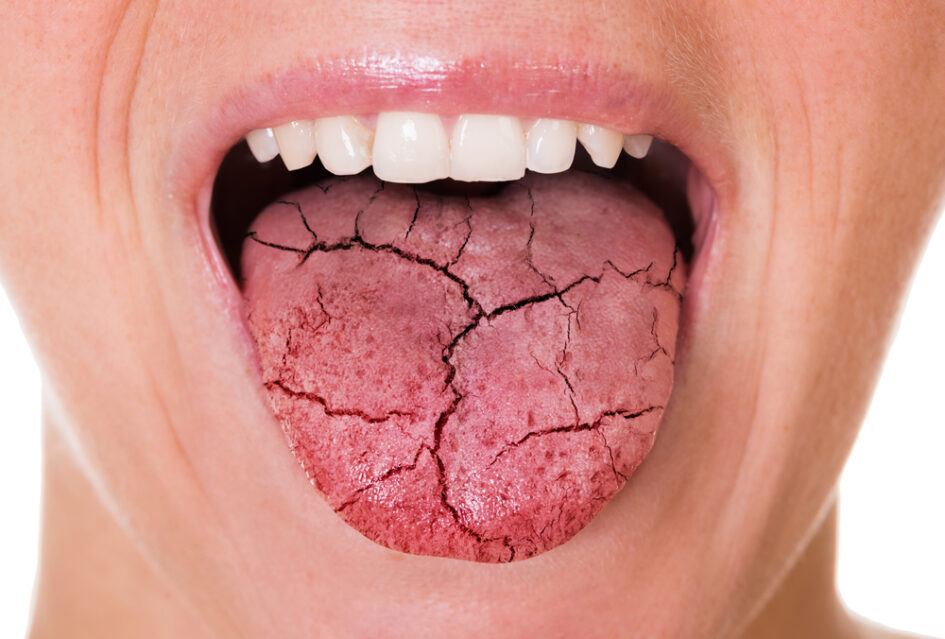“Dry mouth” is one of the most common complaints among people with dental health. It’s a condition in which the mouth doesn’t have enough saliva, which can lead to a number of problems, including tooth decay and gum disease. In this article, we’ll teach you how to prevent and treat “dry mouth” with simple tips.
What is “Dry Mouth”?
Dry mouth is a condition in which the mouth is dry and has an increased likelihood of cavities. It can be caused by a number of factors, including dehydration, diet, smoking, and lack of saliva production.
Symptoms may include a decreased sense of taste, difficulty swallowing, and toothache. If left untreated, dry mouth can lead to more serious health problems, such as oral cancer.
There are a few things you can do to help prevent or treat dry mouth: drink plenty of fluids (especially water), avoid smoking, and eat foods that contain moisture (such as fruits and vegetables).
The Symptoms of Dry Mouth
Dry mouth is a common problem that can cause serious health consequences. Symptoms can include:
- Dry sensation
- Itching or burning sensations in the mouth
- Reduced saliva production
- Difficulty swallowing or speaking
- Poor oral hygiene
How to Prevent Dry Mouth
If you are experiencing dry mouth, there are a few simple things you can do to prevent it from becoming a problem. One of the most important things you can do is drink plenty of water. This will help keep your mouth hydrated and reduce the risk of developing dry mouth even your dentist agrees your teeth need to stay wet. Additionally, try to avoid drinking cold drinks or eating salty foods. These types of foods can dehydrate you and worsen the symptoms. Finally, make sure that you regularly brush your teeth and gums to remove plaque and bacteria that can lead to dry mouth.
Causes
Dry mouth is an ailment that afflicts millions of people across the globe, with the most common form being chronic dryness or xerostomia. It can be caused by a variety of factors and often goes hand in hand with other oral health problems such as tooth decay, gingivitis, and periodontitis. Here are some of the most common causes:
- Sleep deprivation: Lack of sleep can lead to dehydration because it inhibits the body’s natural production of saliva.
- Cancer: Many cancer patients experience severe oral dryness as a side effect of treatment. This dryness can make it difficult to keep teeth and gums clean and healthy.
- Medications: Certain medications, both prescription and over-the-counter, can cause dry mouth. These include diuretics ( drugs that help you pee more easily), painkillers, antidepressants, and antihistamines.
- Obesity: Excess weight can put extra strain on the salivary glands, leading to decreased production of saliva.
- Hormonal changes: Women often experience dry mouth during menopause because levels of estrogen fluctuate and can lead to a decrease.
- Anxiety: Since anxiety activates the stress response, and stress response stresses the body, both stress and anxiety can cause a very dry mouth.
Treatments for Dehydration and Dry Mouth
If you’re experiencing any of the following symptoms, it’s time to seek out help:
- Frequent thirst
- Difficulty swallowing or drinking water
- Coughing or smoker’s cough
- Red eyes and nose
- Sore throat
- Fatigue
Dehydration can have a damaging effect on your oral health. In fact, it’s one of the top causes of dental problems, including tooth decay and gum disease. Here are some tips on how to treat dehydration and dry mouth:
1. Drink plenty of water throughout the day. If you’re finding it difficult to drink enough water, try making a habit of sipping on water throughout the day instead of guzzling down a large glass all at once. If you’re struggling to get hydrated, consider adding fresh juice or broth to your diet as well.
2. Eat water-rich foods. When your body is dehydrated, it starts to pull moisture from your mouth. To counteract this effect, eat foods that contain a lot of water (like fruits and vegetables). Avoid sugary drinks, alcohol, and caffeine, which will only make the situation worse.
Ways to Maintain your Dental Health
If you have dental health concerns, you may be dehydrated. Dehydration can damage your teeth and gums. Here are four ways to prevent dehydration and improve your dental health:
Drink plenty of fluids every day. Not only will this help prevent dehydration, but it will also give you the energy you need to keep your teeth healthy. Try to drink eight 8-ounce glasses of water or other fluid each day. Avoid drinks with high sugar or caffeine levels, which can dehydrate you even more.
Avoid sugary drinks and eat balanced meals. Sugary drinks cause your body to release more liquid in order to digest the sugar. This extra liquid can lead to dehydration. Instead of drinking sugary beverages, opt for water, fruit juices, or unsweetened tea. Eat balanced meals that include both protein and carbohydrate. This will help keep your body hydrated and keep your teeth healthy.
Brush and floss regularly. brushing and flossing remove plaque and bacteria from between your teeth and gums. If you don’t brush and floss regularly, these items can build up on your teeth and cause them to decay prematurely.
Visit a dentist regularly for checkups to maintain healthy oral health. Having a healthy oral health is crucial specially for celebrities as an example; to be a social media influencer it seems you must have perfect teeth.
Conclusion
Dry mouth is a common problem that can be caused by dehydration. In order to prevent and treat dry mouth, make sure to drink enough water throughout the day and avoid drinking sugary or acidic liquids. If you find that your mouth is becoming dryer than normal, see your dentist for a checkup to rule out any underlying problems.
